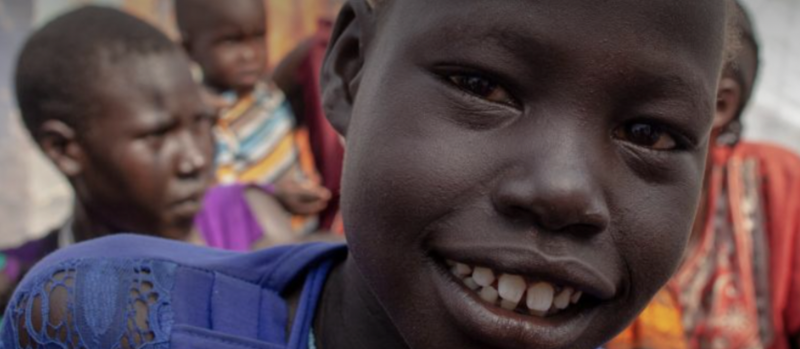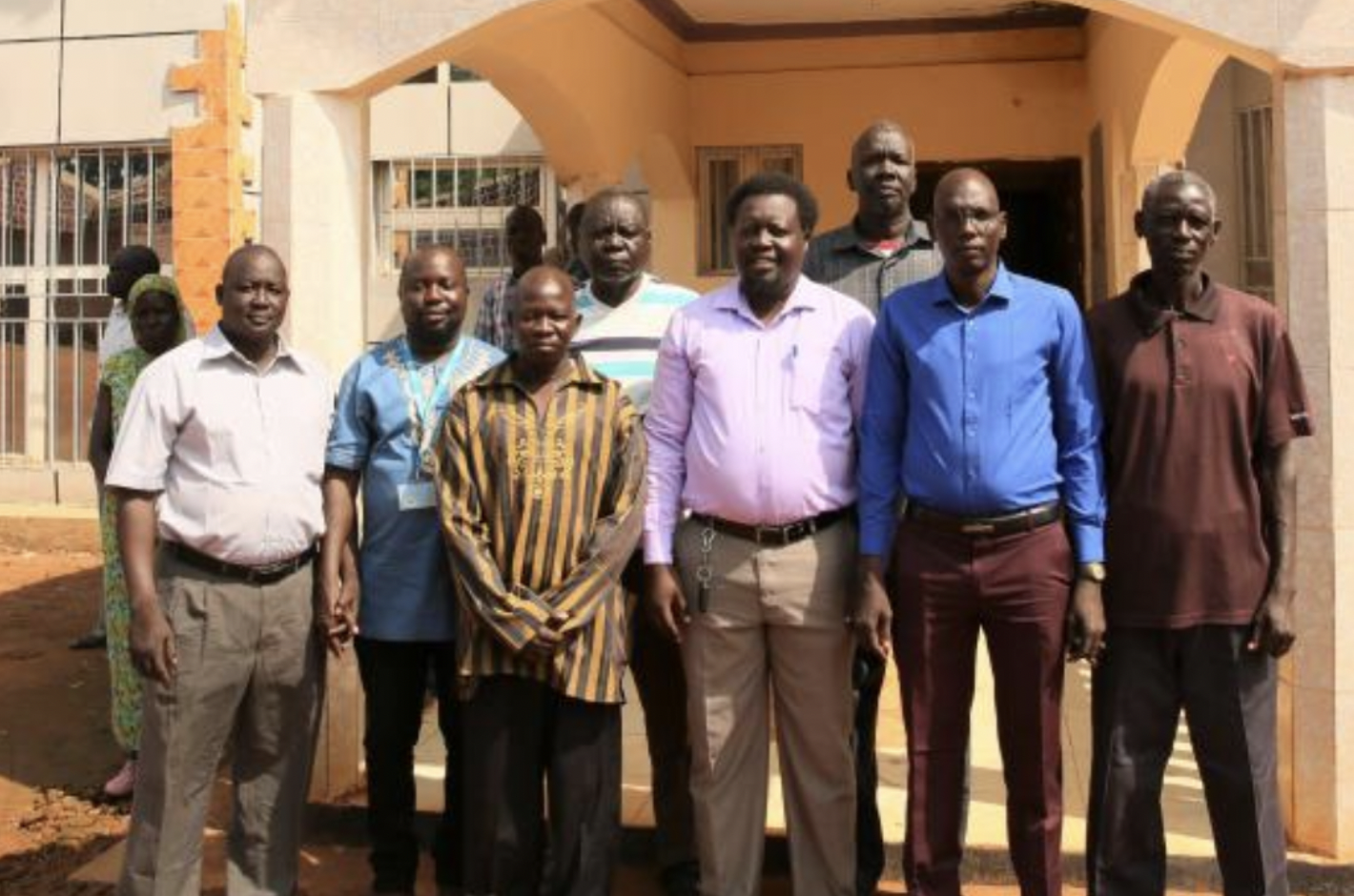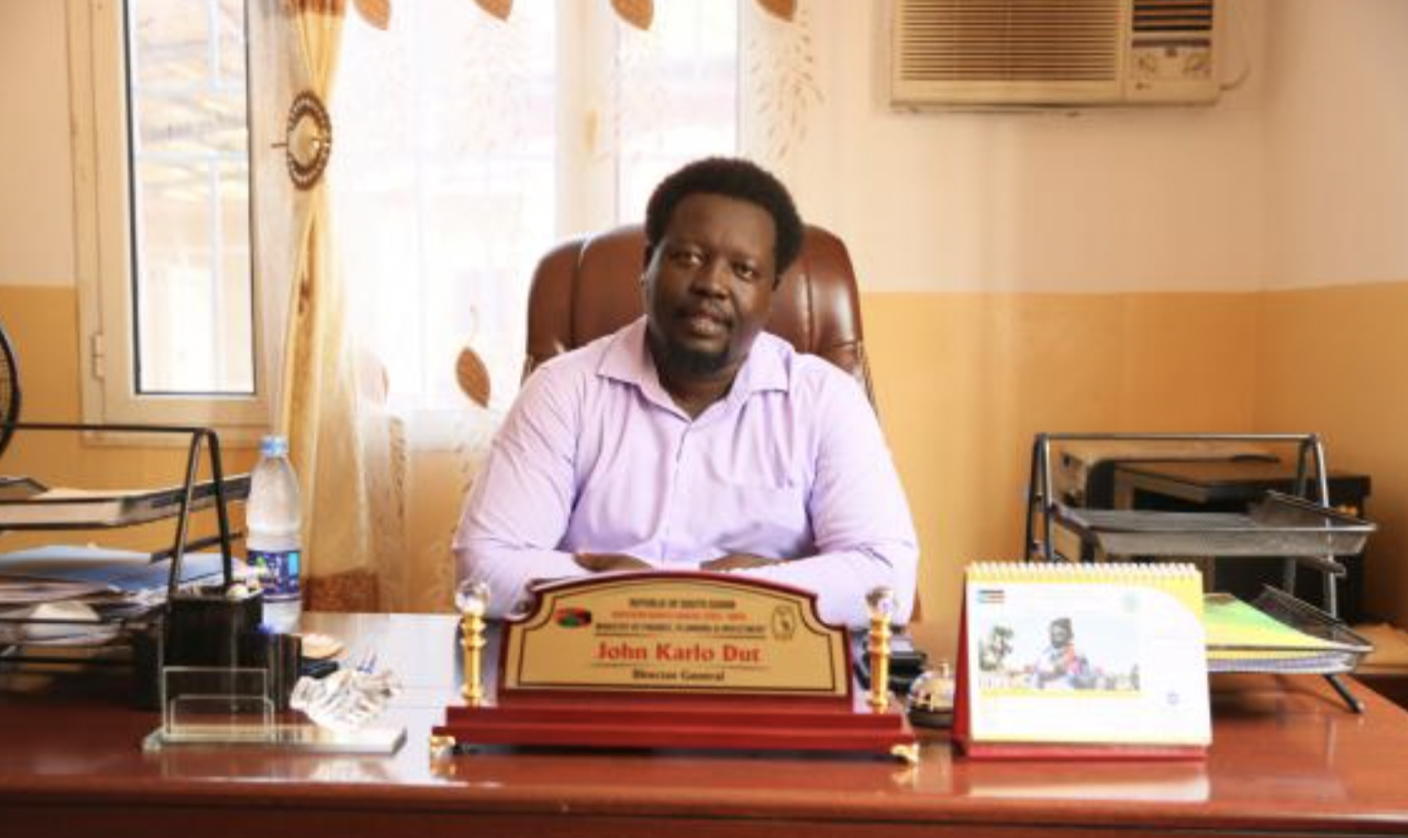

by Robin Giri
UNICEF, along with UNDP, is supporting a public financial management programme with the Ministry of Finance and Planning, to increase public spending for children.
Aweil, South Sudan – John Karlo Dut is a man who takes his job seriously. As the Director General in the Aweil offices of the State’s Ministry of Finance, he is the person responsible for ensuring his team of officers adopt and adhere to the reporting requirements for strict financial management.
“Financial management is not a new concept, because we do it in our lives every day. But as the custodians of finance for the government, we are duty-bound to improve our quality of reports. This will create more transparency and trust – from the state and national government and from our donors,” he says. He explains that when that happens, it will have a snowball effect, whereby there will be more clarity on the expenditures and needs of the different sectors of the government. This in turn will identify the gaps in development spending and provide justification for more investment in underserved sectors. That investment, particularly in social services related to children and women, is the end goal of the Joint United Nations Sustainable Development Goals (SDG) Fund Programme.
Supported by the UN Resident Coordinator’s Office, UNDP, and UNICEF this Joint SDG Fund Programme seeks to strengthen national and subnational public financial management – so that by 2022, there is a 2% increase in national budget allocations for national priorities and social services. Specifically, the Joint SDG Fund Programme seeks to strengthen the collaboration between State Revenue Authorities and the National and State Revenue Authorities (NRA) to increase the effectiveness and transparency of non-oil revenue collection. It also seeks to establish a national dashboard to monitor state online financial reporting and increasing awareness on the Public Finance Management cycle through citizens’ engagement.
By 2030, the Joint Programme ambitiously envisages an increase in 15% budget allocations for national priorities and social services, in line with the South Sudan National Development Strategy. Northern Bahr El Ghazal State is one of three pilot states where the Joint Programme was launched in September 2020. The other states are Western Equatoria and Central Equatoria.

"We are lucky because six of my staff members were part of the training conducted by UNICEF in the 2nd quarter focussed on increasing capacity on reporting. Those staff members and are now knowledgeable on the reporting structures and guidelines. This process will make Aweil a model county within Northern Bahr El Ghazal State in terms of financial reporting and will build our reputation nationally, and we may be one of the first counties to have increased budgets for the social sector,” says Director General Karlo Dut.
Public budget allocations to social sectors remain historically low in South Sudan; in 2019/20 only 1% of public spending was allocated to health, 5% to education, and 2% to social and humanitarian affairs.
Allocating greater resources to critical social services and ensuring their efficient, effective, and transparent utilization will strengthen resilience, social cohesion and benefit all people, especially the most deprived and vulnerable children and women. Karlo Dut is pragmatic and says that the training alone will not be enough. We must ensure there is a cascade effect – whereby the trained officials will be able to train other staff within the Ministry over time.
“This is a programme that will pay itself forward. We must ensure the trained officials remain in the same location long enough to build the capacities and skills of the other staff so that the whole team is singing the same tune,” he says. There is optimism among civil servants like Karlo Dut, as South Sudan has just commemorated its first decade of independence as a new country; there is hope as the nation slowly builds itself from the rubble of conflict and war.

“We have to lead by example and show the younger generation that there are strong institutions in place that are transparent and accountable to its people and youth – which in turn makes South Sudan responsible to them. If we can do that, even with one county at a time, then we have made progress,” he says. The Joint Programme will run from 2020-2022 and is supported financially by the Joint UN SDG Fund, UNDP, and UNICEF South Sudan.
Activities and goals of the Joint UN SDG Fund Programme are to strengthen the collaboration between State Revenue Authorities and the National and State Revenue Authorities (NRA) to increase the effectiveness and transparency on non-oil revenue collection. It also seeks to facilitate an inclusive consultative process with youth, women, and people with disabilities under the Sustainable Development goal principle of ‘leave no one behind.’
The Ministry of Finance and Planning (MoFP), together with the United Nations Resident Coordinator’s Office, UNDP and UNICEF have established the Joint Sustainable Development Goals (SDG) Fund Programme to strengthen national and subnational public financial management (PFM) mechanisms in South Sudan with the aim of increasing budget allocations to social service sectors. The South Sudan National Development Strategy (NDS) aims to ensure that 15% of South Sudan’s National Budget is allocated to social services.
Originally published on https://www.jointsdgfund.org